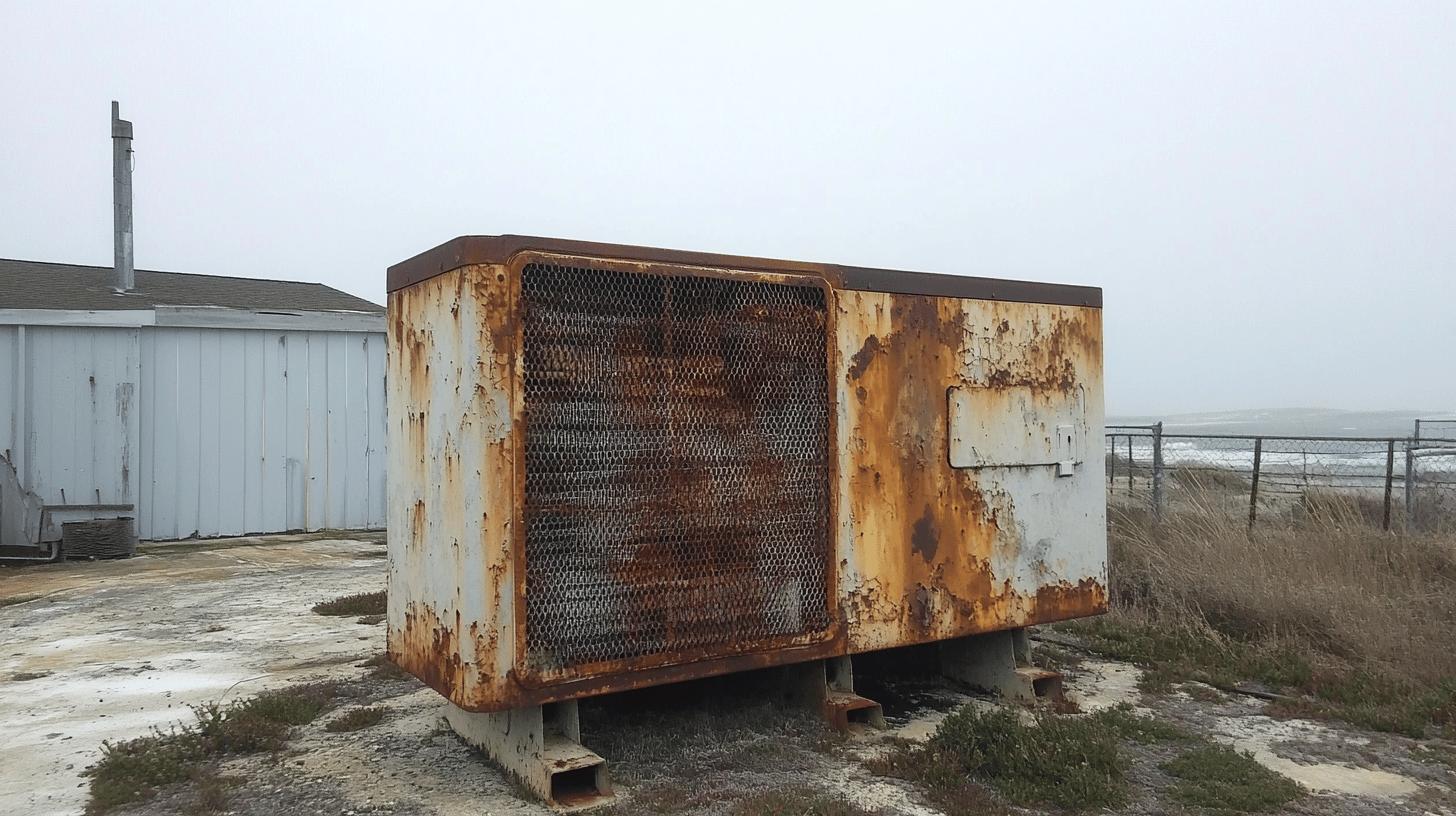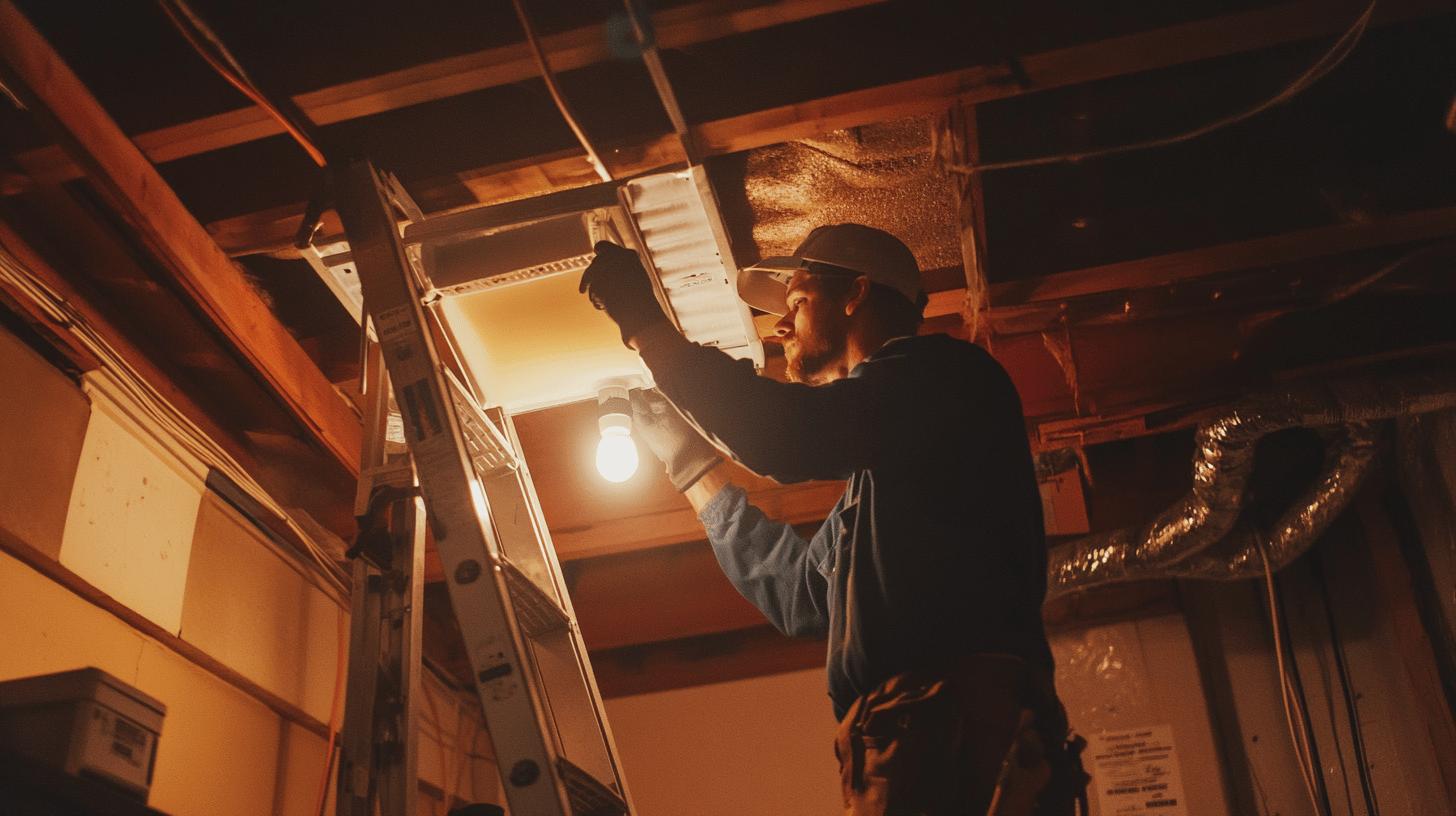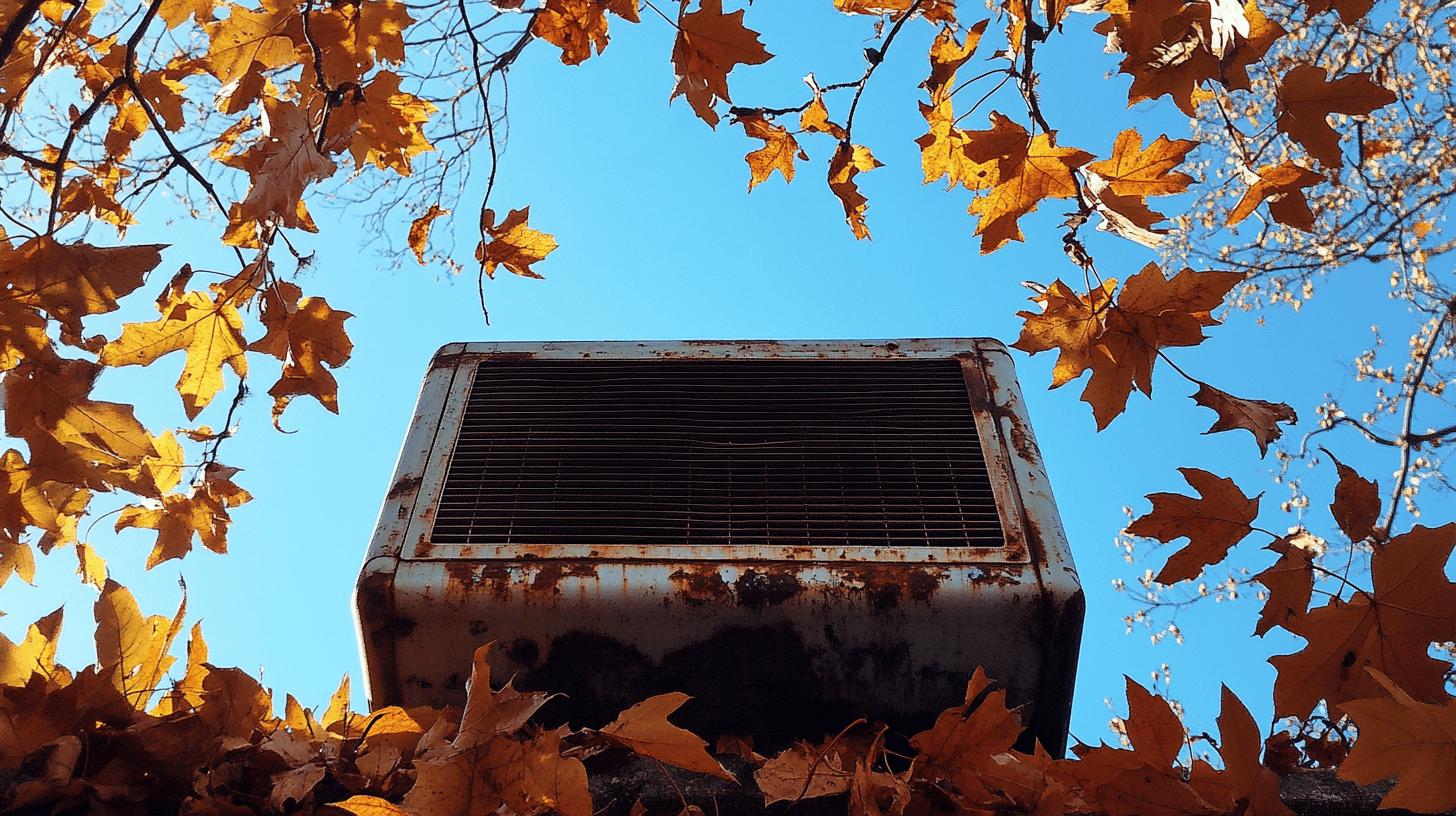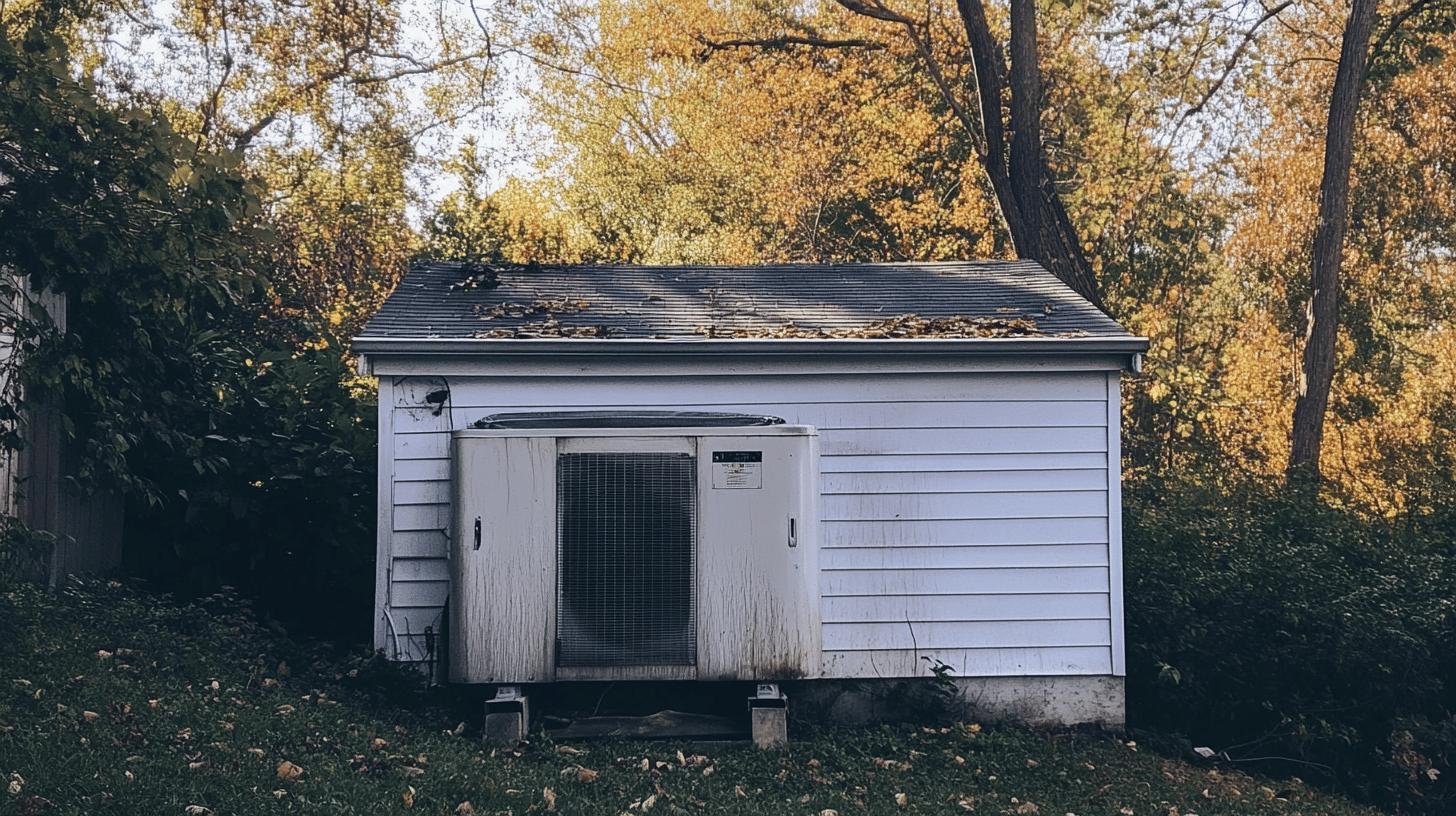TL;DR:
- Average HVAC lifespan: 15-25 years.
- Air Conditioners: 15-20 years, Furnaces: 15-30 years, Heat Pumps: 10-20 years, Boilers: 20-35 years.
- Regular maintenance extends lifespan and improves efficiency.
- Signs of aging: rising energy bills, frequent repairs, and unusual noises.
- Use the “5,000 rule” for replacement decisions: if repair costs multiplied by system age exceed $5,000, consider replacement.
- Regional factors (humidity, heat) can impact longevity; choose resistant materials and ensure proper maintenance.
- Consult professionals for maintenance and assessment for informed decisions on repairs or replacements.
How long do HVAC systems actually last, and is your unit getting close to the end of its life? Knowing how long your HVAC equipment should last is important for planning both your budget and home maintenance. On average, HVAC systems last between 15 to 25 years, but things like how well it’s maintained and the specific parts can affect that. In this guide, we’ll break down how long different parts of your HVAC system typically last and give you tips on how to keep it running longer. Let’s take a look at your system’s lifespan and how you can make it last!
Understanding the Average Lifespan of HVAC Systems
Knowing how long HVAC systems last helps with planning maintenance and budgeting. On average, HVAC systems last between 15 to 25 years, but their components wear out at different rates. Air conditioners usually last 15 to 20 years, so they’re often the first to need replacing. Furnaces can last 15 to 30 years, while heat pumps typically last 10 to 20 years. Boilers are the most durable, lasting anywhere from 20 to 35 years. Understanding these lifespans helps you stay on top of maintenance and plan for future replacements.
|
— | —
Air Conditioners | 15 to 20 years
Furnaces | 15 to 30 years
Heat Pumps | 10 to 20 years
Boilers | 20 to 35 years
Knowing these lifespan estimates helps you plan maintenance and save for replacements. Understanding how long each component lasts lets you budget for upgrades ahead of time. Regular maintenance by professionals can extend the life of your HVAC system and improve its efficiency, ultimately saving you money in the long run.
Factors Affecting HVAC System Longevity

Regular maintenance is essential for getting the most out of your HVAC system. It helps catch small problems before they become big issues, keeping the system running efficiently and extending its life. Changing filters, cleaning parts, and checking for wear all contribute to better performance and lower energy costs.
Environmental factors like frequent use, coastal salt, or high humidity can speed up wear on your HVAC system. In these areas, choosing durable materials and maintaining your system regularly is important to ensure it lasts.
Good installation is just as crucial. When a professional plumber installs your system, they make sure it’s the right size for your home, preventing unnecessary strain. Proper installation prevents issues like refrigerant leaks and poor airflow, which can damage the system and reduce its lifespan.
Signs Your HVAC System Might Be Aging
Spotting the signs of an aging HVAC system early can save you from unexpected breakdowns and expensive repairs. If your energy bills are rising, it could mean your system is working harder than it should. As HVAC systems get older, they become less efficient, often using more energy to heat or cool your home. A professional can help pinpoint where the system is losing efficiency and suggest fixes.
Another sign is if you’re calling for repairs more frequently. If the repair costs are adding up, use the “5,000 rule”—multiply the cost of your last repair by the age of the system. If the total exceeds $5,000, it might make more sense to replace the system instead of continuing to fix it.
Strange noises or smells are also warning signs. Squealing or grinding noises could mean mechanical issues, while musty or burning odors might point to electrical problems or mold. If you notice these signs, don’t ignore them. A professional can diagnose the problem and keep your system running safely and efficiently.
How to Extend the Lifespan of Your HVAC System

Regular maintenance is essential for keeping your HVAC system running smoothly and extending its lifespan. Professional plumbers conduct thorough inspections to identify potential issues before they become major problems, reducing the risk of unexpected breakdowns. By catching minor issues early, maintenance helps avoid costly repairs. It also ensures that your system performs at its best, reducing energy consumption and lowering utility bills. Scheduling regular check-ups not only extends the life of your HVAC system but also helps maintain a comfortable and energy-efficient home.
- Change filters regularly for efficient airflow.
- Clean ducts periodically to avoid dust buildup.
- Schedule annual inspections with a professional.
- Check for refrigerant leaks and address them quickly.
- Ensure proper lubrication of moving parts.
- Inspect electrical connections and tighten as needed.
Regular maintenance actions play a big role in improving your HVAC system’s efficiency and delaying the need for replacements. Changing filters regularly prevents clogs that can strain the system, while cleaning ducts ensures smooth airflow, reducing wear. Annual inspections help catch issues early, allowing for timely repairs that prevent bigger, more expensive problems down the line. Fixing refrigerant leaks and maintaining electrical connections also reduce energy loss, keeping your system running efficiently. By sticking to a regular maintenance routine, you can extend your system’s lifespan, delay costly replacements, and ensure reliable performance for years to come.
Regional Lifespan Variations of HVAC Systems
Regional factors can significantly impact HVAC system longevity due to climate and environmental conditions. In coastal areas, for example, high humidity and salt exposure can cause corrosion, especially in air conditioners and heat pumps, which can shorten their lifespan. The salty air accelerates wear on components, leading to more frequent maintenance or replacements. On the other hand, HVAC systems in inland areas with more temperate climates may last longer since they aren’t exposed to these harsh environmental factors. Understanding the regional conditions of your area helps in choosing the right system and maintenance plan to maximize its lifespan.
- Florida: High humidity and salt can cause corrosion, shortening system life.
- Texas: Extreme heat increases workload, potentially shortening operational life.
- Arizona: Dry, dusty environments can clog filters faster, causing mechanical wear.
- New York: Cold winters require efficient heating, stressing furnaces and boilers.
Homeowners can mitigate regional effects on their HVAC systems by scheduling regular maintenance with professional plumbers. In areas like Florida and Texas, where humidity and salt exposure are common, selecting corrosion-resistant materials and ensuring proper system installation can help extend the life of the HVAC system. Additionally, choosing systems specifically designed for local climates—such as those built to handle high heat or moisture—can improve performance and durability. Regular inspections and maintenance, like cleaning filters and checking for wear, help keep systems running efficiently and reduce the need for costly repairs or replacements in the long run.
When to Consider Replacing Your HVAC System

How do age and efficiency indicate it’s time for a replacement? Systems over 15 years old typically suggest its time to replace them. As units age, they become less efficient, raising energy use and bills. Older systems often struggle to maintain desired temperatures, forcing them to work harder and wear out faster. Assessing efficiency and age is crucial for replacement decisions.
- Frequent repairs suggest a failing system since constant breakdowns raise costs.
- Outdated refrigerants, like R-22 Freon, indicate the system is obsolete and may not comply with current regulations.
- Rising energy bills can signal decreased efficiency, prompting a more energy-efficient model.
- Uneven home temperatures hint the system can’t distribute air well, implying it’s nearing its end.
What do industry recommendations say about replacing HVAC systems? Experts recommend weighing repair costs against investing in a new unit. The “5,000 rule” is useful: multiply repair costs by system age. If they exceed $5,000, consider replacement. This financial advice aids in sound decisions. Consulting professional plumbers provides an in-depth assessment of your system’s condition, ensuring informed replacement decisions that suit your needs and budget.
Final Words
Understanding how long HVAC systems last is key for making smart decisions about maintenance and replacement. By knowing the average lifespan of HVAC components and the factors that affect their longevity, you can plan and budget more effectively. Regular maintenance and professional installation play a big role in extending the life of your system, helping to avoid surprise costs down the road.
Watching for signs of aging, like rising energy bills or frequent repairs, can help you spot issues early and keep your system running longer. Additionally, adjusting maintenance to suit your region’s climate—like high humidity in Texas or salt exposure in Florida—can further boost durability.
Keep these tips in mind to ensure your HVAC system performs reliably and lasts as long as possible.
FAQ
How long do HVAC systems last?
HVAC systems generally last between 15 to 25 years. Air conditioners typically have a lifespan of 15 to 20 years, while furnaces can last from 15 to 30 years. Heat pumps usually last 10 to 20 years.
What is the average cost of replacing an HVAC system?
The average cost of replacing an HVAC system can range between $5,000 and $10,000. The price varies based on the size of the system and the complexity of installation.
How do regional factors affect HVAC system longevity?
HVAC systems in areas like Florida and Texas may have shorter lifespans due to humidity and salt exposure. This can cause quicker wear and tear, impacting the system’s overall durability.
Can an air conditioner last 30 years?
An air conditioner lasting 30 years is rare. Most air conditioners last 15 to 20 years, and reaching 30 years typically requires exceptional maintenance and favorable conditions.
How do I know when my HVAC needs replacing?
Signs your HVAC needs replacing include increased energy bills, frequent breakdowns, inconsistent temperatures, and unusual noises or odors. Systems over 15 years old often require replacement considerations.
How can you extend the lifespan of an HVAC system?
You can extend an HVAC system’s lifespan with regular maintenance. Change filters, clean ducts, schedule annual inspections, and address repairs promptly to optimize efficiency and longevity.
Should I replace my 20-year-old air conditioner?
Replacing a 20-year-old air conditioner is often recommended, especially if it experiences frequent faults or uses outdated technology, impacting efficiency and repair costs.
What factors affect the life expectancy of HVAC equipment?
Factors include maintenance quality, usage frequency, environmental conditions, and installation quality. Regular maintenance and professional installations can extend the HVAC equipment’s life expectancy.

